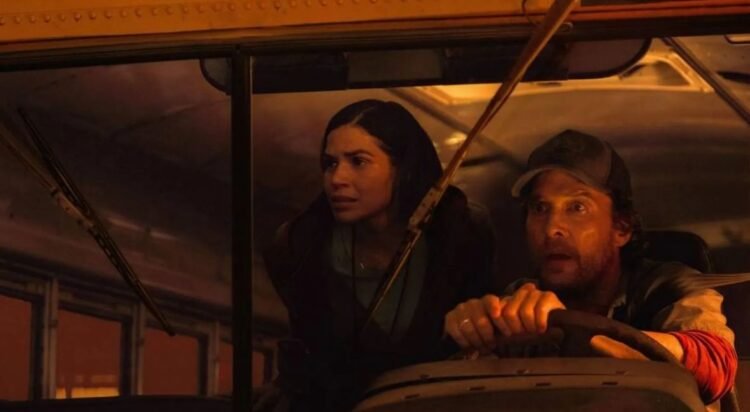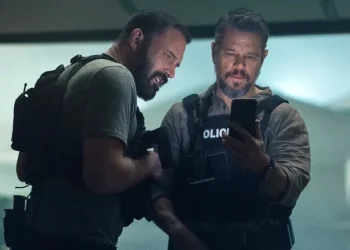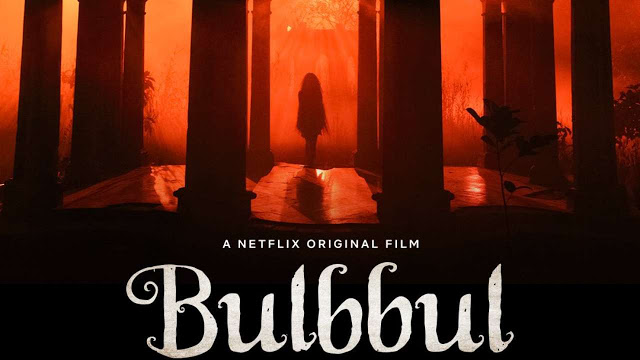Apple TV+ continues to expand its movie lineup in 2025 with The Lost Bus, a survival drama led by Matthew McConaughey and America Ferrera. Inspired by true events chronicled in Lizzie Johnson’s book Paradise: One Town’s Struggle to Survive an American Wildfire, the film revisits the harrowing 2018 Camp Fire tragedy. Directed by Paul Greengrass and co-written with Brad Ingelsby, the movie captures both the chaos of nature’s fury and the human resilience needed to overcome it.
Story
The plot centers on bus driver Kevin McKay (Matthew McConaughey), who begins his day juggling personal worries. His son is sick at home, and Kevin suspects he’s merely faking illness to skip school—only to realize the boy is genuinely unwell. Plans to return home quickly unravel when a massive wildfire accelerates across Paradise, California.
Called into action by dispatch, Kevin reluctantly agrees to evacuate 20 schoolchildren, teaming up with teacher Mary Ludwig (America Ferrera). What should have been a straightforward assignment soon spirals into a fight for survival as the fire traps them in unpredictable conditions. Communication lines falter, escape routes vanish, and fear spreads among passengers. What begins as Kevin’s personal struggle to prioritize family turns into a mission to protect every child aboard his bus.
Performances
The emotional weight of The Lost Bus rests heavily on the shoulders of its two leads—and McConaughey and Ferrera deliver with conviction. McConaughey captures Kevin’s slow transformation from reluctant participant to determined protector, while Ferrera injects calm, warmth, and grit into her role as the teacher caught in the storm.
Supporting performances by Yul Vasquez, Ashlie Atkinson, and Spencer Watson underline the collective desperation of a community under siege. The tension on screen works best when the adults reveal glimpses of panic, letting the children—and the audience—grasp the full severity of their circumstances.
Behind the Scenes
Paul Greengrass, known for his immersive style, builds tension through subtle yet powerful cinematography. The shifting environment outside the bus—from clear skies to falling ash and encroaching darkness—creates a visceral sense of claustrophobia. The choice to keep much of the action confined within the school bus could have limited the narrative, but instead it emphasizes the trapped, suffocating atmosphere of wildfire survival.
The score and sound design further enhance the unease. Dispatch lines failing, radio silence from law enforcement, and the distant roar of fire all contribute to the unnerving uncertainty. Visually, the film contrasts with broader survival dramas like The Last Breath—where expansiveness creates fear—by focusing on the compressed intensity of heat, smoke, and dwindling options.
Final Verdict
The Lost Bus doesn’t revolutionize the “based on a true story” formula. Audiences already have an idea of where the story is heading, and the script occasionally feels conventional. Still, the film succeeds because its cast elevates the material, breathing urgency and vulnerability into every moment.
Greengrass’s direction, paired with strong performances and atmospheric design, makes The Lost Bus a gripping—if somewhat predictable—journey. It might not break new ground in storytelling, but it captures both the terror of disaster and the hope found in human courage.
Worth streaming for the cast and emotional punch, especially for fans of survival dramas.























